Martin Giuffre, Canada’s highest ranked player in men’s singles badminton, spoke to Badzine recently about the unique challenges he faces as he attempts to qualify for the Olympics for the first time.
By Don Hearn. Photos: Badmintonphoto
The road to Rio takes on nearly as many shapes as there are badminton players walking it. For someone like Chen Long or Zhang Nan, it’s just a matter of continuing to be the best in the world. For others, it’s about joining their team-mates in the top 16 or the top 8. Many doubles pairs from Africa, Oceania, and the Americas will be vying to plant themselves deeper into the top 50 than any chasers from their continents.
For 24-year-old Martin Giuffre of Canada, the goal is the same but like the others, he has his own conditions and obstacles. At the moment, he is the top-ranked Canadian in the men’s singles world rankings but at #103 in the world, winning a ticket to the 2016 Olympics is anything but a certainty.
“You need to reach about a world ranking of top 70 for ten tournaments so that’s what I’ll be looking to do by May of 2016,” said Giuffre after his exit from the BWF World Championships in Jakarta.
In fact, Giuffre is already in an ostensibly comfortable 57th spot in the BWF’s new lists that include only points accumulated during the Rio qualifying period. However, many players just behind him, including Canada’s national champion Andrew D’Souza, have played fewer tournaments and that means everyone is under pressure to make every tournament count over the next eight months.
Giuffre did his best to make his appearance at the World Championships in Jakarta count. In the first round, he took down Thomas Rouxel of France – a player ranked over 50 rungs above him and the same man who had removed D’Souza from the Canada Open earlier this summer.
Giuffre, who was Pan Am Junior Champion in 2008, elected to finish his studies before getting back into badminton full-time and admits that he has some catching up to do on players he was on par with as a junior. However, his second match in Jakarta involved more than just an age gap as he took on world #4 and eventual bronze medallist Kento Momota of Japan.
“Kento was probably the highest calibre player I’ve played so far in my career,” said Giuffre after losing in straight games. “Either Kento or Chou Tien Chen, whom I played at the U.S. Open last year, are at the same calibre but I think this year, definitely Kento.
“Considering the situation here, too, being a bit nervous, I didn’t find Kento actually did too much to me. He kinda just was patient and played. I was my own worst enemy. I was just making a ton of mistakes as opposed to him putting the bird on the floor. I was a little disappointed in my play. The first game was better than the second but I was quite impatient today.
“Kento is a great player. He creates that feeling. You know you have to be finishing the rallies and hitting your best shots so he created that feeling for me today. I was a little bit up and down, especially at the start of the second game. I just lost my focus and was not willing to rally like I should have. Once I settled down, the points started coming. I’ll definitely take that away as a learning experience.
“[Istora Senayan] is also quite a difficult hall to play in. For players of his calibre compared to some of us a little bit lower in the world rankings, you can really see the difference. It seems as if the guys in the top fifteen, their quality isn’t dropping as much, whatever the conditions are, whereas it’s a little bit trickier for players like myself to find the back of the court. And the pressure all adds up, and you think you have to do more than you should. It was a great experience and I really enjoyed the match.”
In addition to the crowd, the hall, and the expert opponent, Martin Giuffre’s Court 1 appearance offered other new experiences. This was his first encounter with the new Hawk Eye call review system: “Today was the first time and it was fun. Unfortunately, I was unsuccessful both times.
“For the current scoring system, I think that’s a really important system that hopefully we can get on all courts at the World Championships or Olympics. For some of these matches, when they’re going into third games, those are crucial, crucial points so it’s great verifying system and I think all players love it.”
The continental divide
Martin Giuffre actually marks another footnote to Canada’s unexpectedly low medal haul at their home Pan Am Games. The Canadian team was famously without their three-time continental champions in men’s doubles – as Derrick Ng and Adrian Liu were disqualified due to a catastrophic clerical error – but Giuffre, too, was left off the Canadian contingent despite peaking at world #85 a few weeks before the Games.
“There have been problems for me in the past year with my national federation,” said Giuffre. “I am the top ranked men’s singles player in Canada but I wasn’t selected for the Sudirman Cup or for the Pan Am Games. It’s because the criteria relies a lot on domestic performance and I didn’t do so well at nationals. I understand that it’s important to know how you play under pressure but not in an Olympic qualifying year.”
Both continental championships and team events are particularly important for players like the Canadians who are looking for Olympic spots. Those three Canadians were the only top contenders to miss the Toronto games. As for the Sudirman Cup, which Liu and Ng did attend, Giuffre missed that too, but he could still have a chance to acquire valuable team event points if he is selected for the Pan Am Team Championships next spring.
Going east
While the Worlds were obviously a valuable experience, obviously, the odd meeting with a top ten player is no substitute for constant exposure to a world class training environment. Martin Giuffre’s training base is the Glencoe Club in Calgary, where former All England champion Ardy Wiranata is the man in charge, and he mainly spars with former national team player Alex Pang.
But Europe is beckoning with its promise of abundant talent and a circuit full of mid-level tournaments: “I was in Denmark earlier this year training and it was great. I’m going to be going back. I just have to plan with my coaches back home when I’ll be going. I think a lot of us players are starting to explore training overseas because the quality of play is a little bit higher.
“Having anywhere in Europe as your home base is great. I haven’t committed to going over there full-time but it’s definitely a shorter flight and the calibre of tournaments is really high so I think in terms of improving as a player, Europe is definitely a hot spot to be for players like myself.”
Going west?
Giuffre was also asked whether his affiliation with Indonesian-born Wiranata might hold possibilities for him in this part of the world. After all, a lot of what appeals to players about Europe is also true of Asia, but with some important differences.
“Definitely, I think Ardy’s connection is a great thing for me to try to explore,” said the Canadian. “I think this year will be a little bit tricky with it being an Olympic qualifying year and having to focus on tournaments. Ardy has definitely posed the question to me. If I ever want to go to Indonesia, he could set something up so it’s really good to know that. It would be amazing. I’ve loved it here so I’d definitely be interested in coming back.
“I think that you have to pick and choose your tournaments depending on what your goals are for that year and for me right now, I’m not quite ready to start playing some of the Asian tournaments. I think it’s something I’ll be looking into in the future but I think for me, after just finishing school and starting up again full-time, it just takes time to get your level where you want it to be.
“If you look at Michelle [Li], it took her an Olympic Games and then another full session to get to where she is now. I think she is a great role model for me in terms of what steps to do in getting there. I’m going to take my time and then maybe in the next cycle and then do that if my level gets there.”
Bound for the south
For now, Martin Giuffre is continuing to play in the Western Hemisphere, from which the Worlds in Jakarta was his only departure so far in 2015. He has won two International Series events this year but only one of those can count toward his qualification for Rio and from now on, the fields will only get stronger.
In fact, next week’s Guatemala International Challenge will mark only the second time this year that Giuffre will be in the draw along with all four Pan Am Games medallists. That is, if home favourite Kevin Cordon, who won gold in Toronto, has recovered from the injury that forced him to withdraw from the Worlds.
Giuffre has his work cut out for him as he is set to face top-seeded Spanish veteran Pablo Abian in the second round. The second round will also be tricky for Andrew D’Souza, who will have to repeat his Pan Am Games heroics against Osleni Guerrero of Cuba if he wants to advance and gain ground on Giuffre in the race for that ticket to be the sole Canadian in the Olympics.
Martin Giuffre told us the plan for his badminton adventure on three continents this year. It is an adventure that he hopes will end in Rio de Janeiro next summer.
![Canada’s #1 Martin Giuffre looks east and west as he heads to Rio Martin Giuffre, Canada’s highest ranked player in men’s singles badminton, spoke to Badzine recently about the unique challenges he faces as he attempts to qualify for the Olympics for the […]](https://www.badzine.net/wp-content/uploads/Newsflash-thumbnail.png)
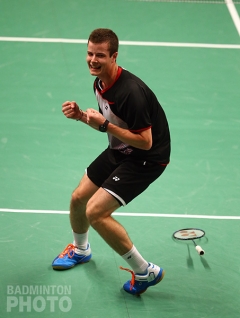
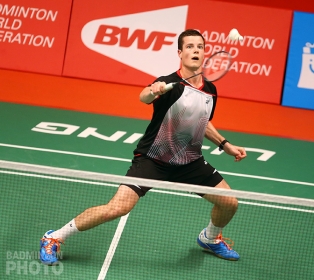
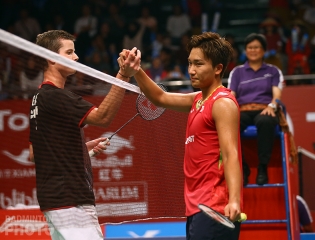
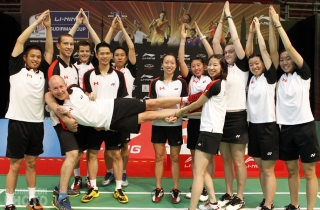
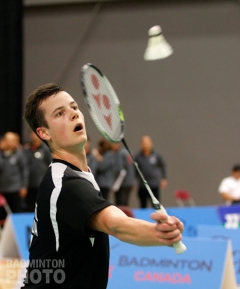
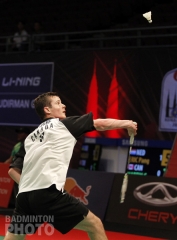
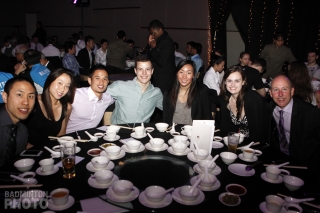

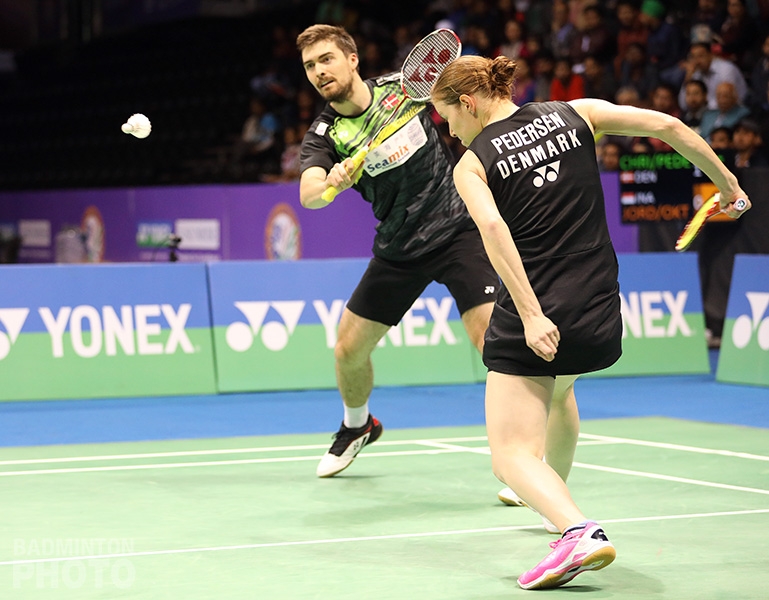
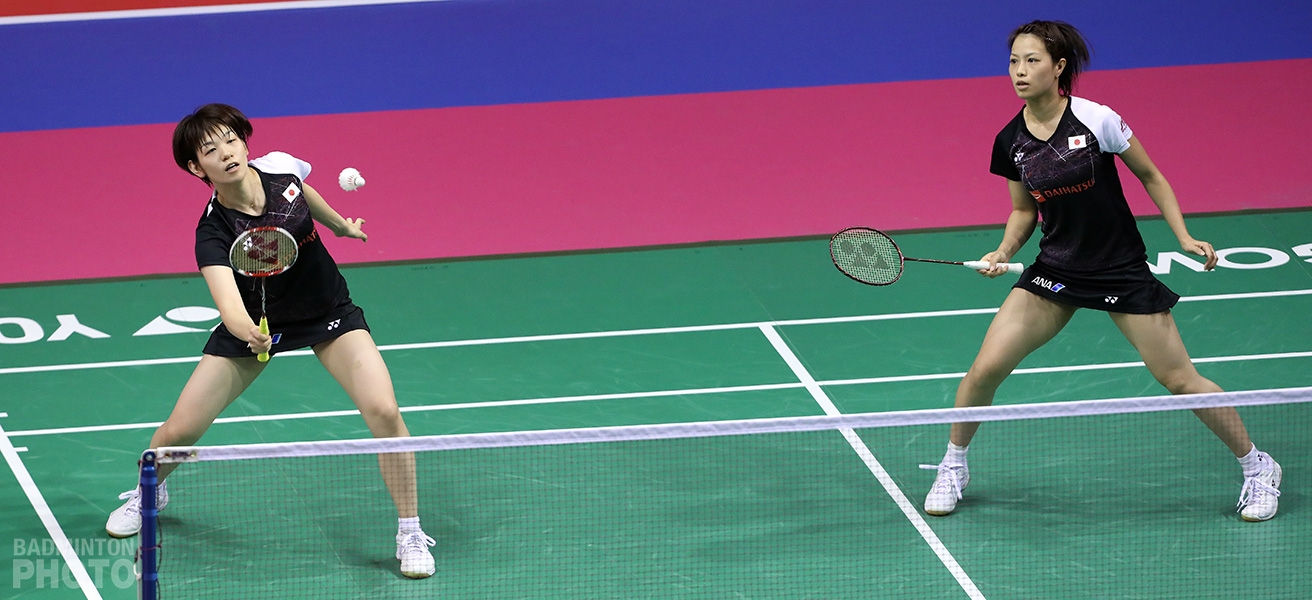
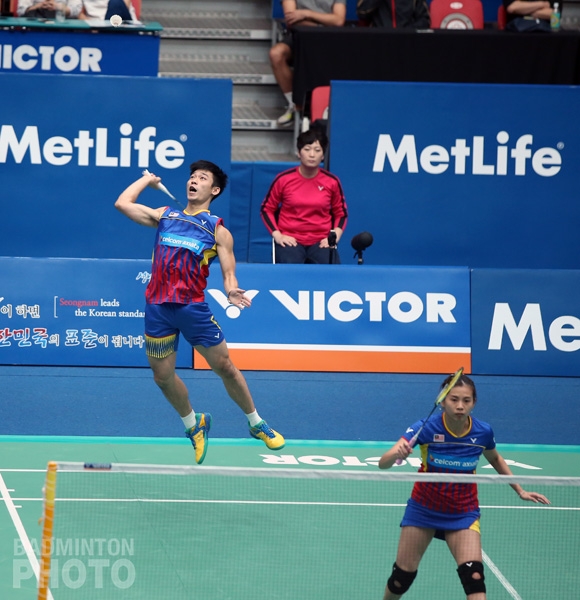
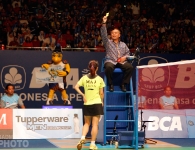
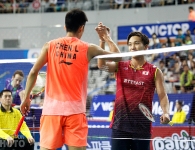
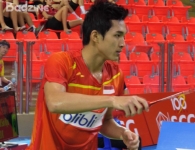
Leave a Reply